I feel like a lot of my blog is devoted to film as of late...and usually, I will discuss fantastic performances within those films whether I am doing a top 10 list or just a straight up review for a film that has come out.
I decided it might be fun to do something similar with performances.
My plan is to go decade-by-decade and choose 20 performances that I find to be the best (or among the best) of that respective decade.
However, for this journey, I am giving myself some caveats that I will try my best to follow.
Caveat #1 - The lists will not contain any performances that won an Oscar during that decade.
Caveat #2 - I will try to limit the number of performances on the list that got an Oscar nomination.
I decided to start with the 90s first.
My limit that I hoped to not go over in terms of discussing nominated performances was 5, but I ended up acknowledging 7. So, for future posts, I will try to keep that tally between 5-7...or maybe even lower if it comes down to it.
Will I break the rule and actually acknowledge a winning performance down the line?
It is possible. There are some performances where I might just find them too undeniable to ignore, but for this list, I am sticking to my rule...or maybe I will list 5 "Honorable Mentions" that are Oscar-winning performances that I felt truly were worthy of being considered "among the best".
I think I have established my tentative ground rules, so I shall start this list with one of the 7 people that managed to be the bridesmaid of their Oscar category.
I will go ahead and name five Oscar winners from this decade that I loved...but keep in mind, there are still a couple missing from the list that I do love.
FIVE DESERVING OSCAR WINNING PERFORMANCES:
Kathy Bates, MISERY
Jeremy Irons, REVERSAL OF FORTUNE
Jodie Foster, THE SILENCE OF THE LAMBS
Emma Thompson, HOWARDS END
Kevin Spacey, THE USUAL SUSPECTS
=================================
THE LIST:
Angela Bassett
WHAT'S LOVE GOT TO DO WITH IT? (1993)
_____________________________
Juliette Binoche
THREE COLOURS: BLUE (1993)
Juliette Binoche would go on to win an Oscar for her work in The English Patient, which was actually a very strong performance despite my relative disdain for the film. She would get an Oscar nomination four years later in the rather paltry Chocolat, one of the more questionable Best Picture nominees that was clearly a major campaign push by Harvey Weinstein/Miramax.
Binoche's best work was part of the highly beloved Three Colours trilogy directed by the late Polish filmmaker Krysztof Kieslowski.
The first of the films was Blue, which tells the story of Julie, a woman who is grieving the loss of her composer husband and young daughter in a tragic car accident...and on top of that, her mother suffers from Alzheimer's and is at a point where she can't even recognize her own daughter.
We've seen many people grieve on film before. In recent years, Toni Collette's volatile grieving of her young daughter in Hereditary was absolutely unsettling; Hidetoshi Nishijima's diving into the world of Chekhov while coping with the sudden death of his wife in Drive My Car felt like a masterclass in how to cope via art.
I also felt like Nishijima's work came very close to matching a similar level with Binoche.
Binoche is all about boiling restraint. She doesn't want to talk about this grief with anybody; all she wants to do is shut herself off from the world and to live completely in relative silence. She attempts suicide, but can't even swallow the pills; she hits her knuckles against the wall and tastes the blood on her hands...
However, she manages to make a connection with an old friend Oliver (Benoit Regent) who might be able to help get her to move on...and despite being haunted by musical excerpts that were composed by her husband, it is these excerpts that eventually allow her to continue her journey to heal as she and Oliver work together to complete the composition. Although, to add to her anguish, she finds out that her late husband was having an affair with a woman named Sandrine who is pregnant with his child. Julie offers her their family home which she had planned to sell but never got a buyer.
When the film does come to an end, we get to see Binoche's Julie at some semblance of peace; she cries but gives us a glimmer of a smile.
The pain will, undoubtedly, always be there but she has accepted that life should go on for her.
A truly important masterclass on being able to portray grief in its darkest moments.
____________________________
Vincent Cassel
LA HAINE (1995)
Shot in black & white and feeling very spontaneous and sporadic in its approach, La Haine feels like the 90s continuation for the French New Wave era that was prominent in the late 50s through the early 70s led by the likes of Francois Truffaut, Eric Rohmer, Jacques Demy, and a few others.
And much like the 90s, everything takes a darker edge.
La Haine translates to "hate" or "hatred".
Set in the Paris suburb of Chanteloup-les-Vignes, La Haine begins with a news montage about a riot that occurred in which an immigrant named Abdel is severely injured by the police and is now in intensive care under police custody.
Abdel's three friends include Vinz (Vincent Cassel), Hubert (an Afro-French boxer), and Said (a North African Muslim). We watch these three interact throughout the day following the riot and how they are coping with their friend facing potential death at the hands of the police.
Cassel as Vinz is a volatile marvel.
Vinz is extremely aggressive and holds absolute hatred for the police. When the original riot escalated following Abdul's grave injury, a policeman's revolver goes missing...and when Vinz discovers it, he intends to use the revolver on a police officer if Abdul dies.
Vinz seems to want to emulate Travis Bickle in Taxi Driver... even down to mimicking the character's famous "You talkin' to me?" scene in French while staring down into a mirror...except while Travis Bickle never quite got to a volcanic level of intensity, Cassel seems about ready to explode with rage at nearly every moment.
Cassel works so well with his two co-stars, played by Hubert Kounde and Said Taghmaoui (same as their characters' first names) ...and it is their amazing chemistry and ability to make this friendship seem so natural that is a true testament to their skills and that of writer/director Matthieu Kassovitz.
Cassel has gone on to have a very respectable career, but the aggression and volatility and grit that he displays as Vinz is certainly unmatched. There is an unsettling quality to him, but despite how I might share a certain sentiment that the police are certainly highly problematic, there is still a truth to the line that Hubert speaks to him which a direct reference to the title of the film: "La haine attire la haine" - or "Hatred breeds hatred".
A truly powerful film with a powerful performance by Cassel.
_____________________________
Leslie Cheung
FAREWELL MY CONCUBINE (1993)
______________________________
Toni Collette
MURIEL'S WEDDING (1994)
________________________________
Homayoun Ershadi
TASTE OF CHERRY (1997)
Taste of Cherry is a film by Iranian filmmaker Abbas Kiarostami. He is one of those filmmakers that is often beloved in artsy film circles, but isn't very well known outside of those circles. His passing in 2016 seemed to begin a bit of a resurgence of his work and it was thrilling to see a spike of 4-5 star reviews for many of his films on Letterboxd.
Actors have been known to get typecast after playing villainous roles. Very prime example of this include Anthony Perkins as Norman Bates in Psycho or Louise Fletcher's Nurse Ratched in One Flew Over the Cuckoo's Nest.
Pam Grier
JACKIE BROWN (1997)
_____________________________
Anthony Hopkins
THE REMAINS OF THE DAY (1993)
With Hopkins' work in this film, it is the perfect time to discuss the art of "subtle acting".
I feel like whenever I visit film message boards, there are often debates year after year over performances that aren't worthy of recognition because the actor did nothing.
Just this past year, Kerry Condon got a lot of flak for that for her work in The Banshees of Inisherin. Recent winner Regina King was another key example for If Beale Street Could Talk.
The stereotype of an award-winning performance is usually that of someone transforming into someone they aren't for a biopic or perhaps they just scream/yell/cry a lot and perhaps they throw some plates around.
However, there is a fine line to being able to see the brilliance of a performance where the actor doesn't have to try too hard at all.
The year prior, Hopkins' co-star Emma Thompson swept most of the Best Actress races for her work in Howards End, a performance that was far more subtle than a lot of performances that tend to win acting Oscars.
I think what Hopkins achieves here is extraordinary. James is a man with repressed emotions and struggling deeply with his affections for Thompson's Miss Kenton. The genius of this performance is that we could just be watching a man showing no emotion at all...or he could be weeping whenever he has a moment to himself. Here, we are watching a man hold everything in and we can clearly see the struggle. It is enough of a success that it may pass off to some of the people around him who aren't as astute on the situation, but we can clearly see the pain and love he feels for her.
I don't want to go for the hyperbolic statement, so I will leave it as this being one of the best examples that you can find on how to navigate a subtle performance.
___________________________
Anjelica Huston
THE GRIFTERS (1990)
When I think about Anjelica Huston, my mind goes straight to Morticia Addams.
I am a semi-elder millennial, so I don't think you can really blame me for having that be my main starting point. The Addams Family was my introduction to Huston and, if I may say so, I think she was truly iconic as Morticia.
What might not be known amongst those from my generation is that Huston was actually such a sought after and highly praised/beloved character actress in the late 80s/90s. After having her official breakout role in Prizzi's Honor, which netted her an Oscar and officially removed her from strictly being known by many as Jack Nicholson's Plus One, Huston had a great streak of work in the 80s from The Dead up to Enemies: A Love Story.
The finest performance of her career is likely to be that of Lilly Dillon in The Grifters.
The role was originally written for and offered to Cher, but due to the film's minimal budget, Cher was too expensive as she had just won the Oscar for Moonstruck.
Huston originally felt the film was too violent despite the fact the story greatly intrigued her. Her character was to have a scene where she is severely beaten with a sack of oranges (which got cut/toned down considerably in the final film) and the process of filming it was so brutal for her, that she ran away from the set after and spent the night throwing up.
Huston gives herself over to this role in a way that is truly unrelenting...and she works extremely well with John Cusack and particularly with Annette Bening, who is so fantastic in the film in her own right that I almost put her on this list.
Huston was actually considered to be the likely frontrunner for the Oscar but lost to Kathy Bates in Misery. Honestly, I would've been happy either way because while Huston was truly powerful as Lily, you can't deny that Bates managed to walk a tightrope with such a manically ridiculous villainous role.
____________________________
Nicole Kidman
TO DIE FOR (1995)
To think that even after this performance, it still took a few years (mainly the divorce from Tom Cruise) for people to truly take notice and appreciate the talent of Nicole Kidman.
Kidman did gain a lot of attention for her work as Suzanne in To Die For, including some critic award wins and even the Comedy/Musical Golden Globe for Best Actress...but in the end, she missed out on an Oscar nomination.
I still might consider To Die For to be Kidman's finest work. It is darkly comedic, chilling, and truly compelling...and it showed that this actress was more than just Tom Cruise's Plus One.
Kidman plays Suzanne Stone-Maretto, a woman who has always dreamed of being a broadcast journalist along the lines of Barbara Walters or Jane Pauley.
When she marries Larry Maretto (Matt Dillon), she is eventually coerced by him to give up her dreams and to basically become subservient and help out at his family's restaurant.
As this is happening, Suzanne has gotten involved in her small-town local news station called WWEN as an assistant but plans to work her way up the ranks. One such manner is producing a documentary called "Teens Speak Out" about the problems that teenagers are facing. She manages to recruit Jimmy (Joaquin Phoenix), Russell (Casey Affleck), and Lydia (Allison Folland) ...but when Larry insists that she give up her dream, she seduces Jimmy and promises him a relationship only if he will kill Larry.
This is one of those rare performances where you can't exactly say that there are many, if any, emotional layers to the character. Often times, those can be less compelling to watch.
With Kidman as Suzanne, it is a masterclass. You sort of marvel in watching her find ways to achieve her dreams, but as soon as she starts to delve into the more sinister side, you eagerly wait for her to receive her comeuppance...which she eventually does after Jimmy and Russell's lives are destroyed.
When you look at the darkly comedic and sinister performances from recently like Rosamund Pike in I Care a Lot or Carey Mulligan in Promising Young Woman (although that was more in a heroic tone), I think they all have elements that can be traced back to Kidman in To Die For.
She is truly wicked and absolutely cold....and yet somehow a delight.
___________________________
Sheryl Lee
TWIN PEAKS: FIRE WALK WITH ME (1992)
Since the upcoming Twin Peaks television series didn't exactly have a large budget, it seemed logical to just cast a local actress in the Seattle area to play her. Lynch's instincts were correct, because even as a dead girl via flashbacks and photographs, Lee possessed a truly captivating quality.
This quality was so strong that Lynch ended up creating a brunette lookalike character for Sheryl Lee to play on the series...sort of as an homage to Vertigo or even the identical cousin motif of The Patty Duke Show.
Eventually, Lynch had Lee's new character Maddy be killed off in the scene that would reveal to the audience who the real killer of Laura Palmer was.
Lee's performance during the murder is chilling and for an episode of television airing in 1990 on ABC of all channels, it still holds up as being pretty intense even today.
Twin Peaks as a series floundered fast, but Lynch wasn't done with it. He wanted to delve more into the final days of Laura Palmer's life because if there is one thing Lynch loves in his work, it is a woman with deep, dark mysteries leading a troubled life.
Twin Peaks: Fire Walk With Me flopped hardcore when it was released in 1992. A lot of this was due to waning public interest of the show and anger on behalf of those from the show who felt the movie was too dark and grim and strayed too much from certain key elements of what was on the actual show.
I will be honest.
When I first saw the film, I didn't like it. Even to this day, I still think the film does ignore key elements that would be very important on the show (such as Laura's relationship with Ben Horne) …but Lynch left hours of film on the cutting room floor. In the end, this was a film about Laura Palmer.
Even beyond that, this is a truly horrific and brutal look at sexual abuse.
*If you haven't seen TWIN PEAKS, I am about to talk about the killer of Laura Palmer so SPOILER WARNING*
Laura Palmer was killed by her father Leland, who also killed her lookalike cousin Maddy...but the twist is that Leland was possessed by a demonic entity known as Bob. This killing was proceeded by a lot of mental, emotional, and physical abuse.
If we lay the issue bare, Laura Palmer has been getting raped by her father (granted, against his will) since she was 12 years old...and that dark descent leads to us watching her get stabbed to death in a darkened train car in the middle of the Washington wilderness.
*END OF SPOILERS*
And yet...despite the bleakness...it seems at the end that Laura is finally at peace in The Red Room, with Kyle MacLachlan's Agent Cooper there to comfort her.
Sheryl Lee gives such a tortured and no-holds-barred performance here. She can scream like very few actresses can and her looks of anguish and fear could even be somewhat comparable to those of...dare I say it...Renee Maria Falconetti in The Passion of Joan of Arc.
Sheryl Lee was robbed of an Oscar nomination and would've been worthy to win here. It is simply a devastating performance...and I also want to give a shout out to Ray Wise, who played her father Leland. He deserved to be in the Supporting Actor race.
_____________________________
Tony Leung Chiu-wai
HAPPY TOGETHER (1997)
____________________________
Susanne Lothar
FUNNY GAMES (1997)
When you hear the title Funny Games, you might suspect that you are in for a comedic film that could range from a family friendly affair or an R-rated Judd Apatow romp.
___________________________
William H. Macy
FARGO (1996)
Despite his placement in the Supporting Actor category that year, Macy is clearly the film's lead and truly drives a lot of the plot and sets it into motion...but that is basically irrelevant here.
Fargo, which was technically a work of fiction despite the film claiming it was based on an actual 1987 crime, tells the story of Jerry, a wimpy car salesman who is employed by his own father-in-law Wade. Looking to pay off debts, he ends up hiring two henchmen who agree to kidnap Jerry's own wife so that her father Wade would pay them a ransom, which would then be split amongst the three men.
From there, the plan gradually unravels and once local sheriff Marge Gunderson (Frances McDormand in her first Oscar winning role) gets on his trail, it is only a matter of time before his plans are foiled.
Jerry Lundegaard is a despicable character, but also INCREDIBLY pathetic. You almost pity him in how inept he is at basically functioning as an adult...but it is clear why Macy fought so hard to play this role.
This is easily one of the best casting decisions I have ever seen. You often hear the phrase "I can't imagine anyone playing that role" thrown around so often that it has become cheap. In the case of Macy, I think I might go as far to say he was the best, and perhaps, only choice.
Considering you have qualities like being pathetic, despicable, slimy...it becomes remarkable how Macy truly does make you pity this man. I think a lot of that comes from Macy's own likable quality. It is simply a prime example of a performance that is being staged on a tightrope.
In the end, when he is finally tracked down to a cheap roadside motel completely forgetting that he even checked in under an alias, you feel both gleeful and uncomfortable at watching this man in his boxers getting arrested. He gives off such a pitiful air that even the police quickly put their guns back in their holsters because they know this man isn't a threat.
When it all comes to a close, Jerry's actions have caused the death of his wife, the death of his father-in-law, two innocent civilians, and also Carl (Steve Buscemi), one of the henchmen he hired who famously gets fed through a woodchipper.
And left behind is a teenaged son who will have to live with that anguish. It is a truly bleak story and through it all, Macy anchors it with such a slimy chipper energy that is so fascinating. You could argue it is as if Ned Flanders moved to Minnesota, started a new life, and went down a darker path.
____________________________
Fernanda Montenegro
CENTRAL STATION (1998)
___________________________
Julianne Moore
SAFE (1995)
In 1995, Todd Haynes was still very new to the indie cinema scene. He had done 1991's Poison, which was one of the earliest entries in the New Queer Cinema movement along with the infamous Superstar: The Karen Carpenter Story, which tells the late singer's life via Barbie dolls.
Julianne Moore was still not quite a household name. She was an Emmy Award winner for her work on the daytime soap As the World Turns and had supporting roles in movies like The Hand That Rocks the Cradle, Short Cuts, and Vanya on 42nd Street.
Safe gave Julianne Moore her first leading role and also her partnership with Todd Haynes, which would continue with films like Far from Heaven, Wonderstruck, and May/December (coming out in late 2023).
When I first came across Safe, I amusingly thought the idea of a woman being afflicted by an environmental illness sounded a lot like the 1981 Joel Schumacher film The Incredible Shrinking Woman starring Lily Tomlin which...let me step to that for a second...is a truly bizarre movie and such a unique experience that I don't know how I truly feel about it.
Safe is, without a doubt, a more horrific and bleak take on the matter...not to mention incredibly different...no height shrinking occurring here!
Julianne Moore plays Carol White, a housewife living in suburban Los Angeles. She has her routines: gardening and aerobics in particular but her family life doesn't seem overly thrilling and her friends don't feel overly close.
While her home gets renovated, Carol begins to develop a sensitivity to pretty much everything around her whether it be exhaust fumes from a car, getting a nosebleed while getting her hair done, and passing out when she is near sprayed pesticides at a dry cleaners.
Safe is one of those landmark indie films that managed to get a lot of buzz in those circles at the time, but built up a stronger reputation as the years passed.
Julianne Moore's take on Carol feels like a Jeanne Dielman of the 90s...but placed in almost Contagion like world where she just slowly crumbles to this environmental disease (almost very auto-immune) and no one can help her...or even truly seem to want to help her.
The legend of Julianne Moore truly begins with this performance...one that you watch with horror as she tries to cope with an illness that no understands or wants to acknowledge.
Safe is often compared to the Reagan era and for his administration's lack of care and acknowledgment of the AIDS epidemic...and in light of COVID in recent years, I do feel the film deserves to be seen by more people just in how it deals with the response to an unknown disease.
And through it all is Julianne Moore, wasting away tragically before our eyes.
____________________________
Michel Piccoli
LA BELLE NOISEUSE (1991)
There is something truly unsavory and unrepentant about Piccoli as Edouard.
Watching the tortured artist be an insufferable tortured artist might be...well.. insufferable to witness, but this is a performance that feels truly lived in that I, for the longest time, wasn't able to separate Piccoli from this character. Once I saw him in other films, I truly realized the depth of his talents.
I must point out that the paintings are not done by Piccoli, but rather artist Bernard Dufour, whose hand we frequently see in closeups as he paints in real-time.
To quote Christian Blauvelt of IndieWire who paraphrased Aristotle, "We realize the act of creation is sometimes greater than the sum of its creator(s)".
_______________
Denzel Washington
MALCOLM X (1992)
We have another example of a biopic performance...and these days, someone winning for a biopic is often considered the stereotypical choice for Oscar bait.
However, Denzel Washington infamously lost to Al Pacino, who was on his 8th nomination and had yet to win. The general consensus amongst film historians is that Pacino undoubtedly won mostly for the narrative rather than the film itself...and I would argue that Washington losing here (and also for The Hurricane seven years later) allowed him to gain the upper hand with overtaking Russell Crowe in the Best Actor race during the 2002 ceremony.
Washington should've won for Malcolm X.
Much like I said for Angela Bassett, this is easily one of my favorite performances to come from a biopic film. Not only does Washington eerily resemble Malcolm X, but it is simply a performance that just feels so lived in. Washington doesn't even have to try to work hard to impress...he just IS.
Malcolm X was the best film from 1992, in my opinion. I do think Spike Lee does a fantastic job with it even if it does follow a lot of traditional biopic tropes and it has moments of being truly manipulative...something that wasn't as prominent in an original work like Do The Right Thing...but whatever, I can deal with it in this case.
This is a story that needed to be told, especially as many tend to view Malcolm X as the "darker" version of Civil Rights compared to the "saintly" Dr. Martin Luther King Jr.
Both of those men were far more complex than that...not to mention, both men deserve our respect and admiration for what they did achieve.
Spike Lee's passion is undeniable...and that fire is certainly present in Washington. It isn't as bombastic as some of Washington's more hammier portrayals (i.e. his makeup Oscar win for Training Day), but I think this is the finest performance of his career...which is saying a hell of a lot.
____________________________________
Reese Witherspoon
ELECTION (1999)
We live in a world in which Reese Witherspoon is dominating TV by producing content that is providing strong leading roles for women. We also live in a world in which Witherspoon won an Oscar for playing June Carter-Cash in Walk the Line and is perhaps best known for her work as Elle Woods in Legally Blonde.
For me personally, Witherspoon KILLED IT in Election. Her as Tracy Flick remains the role I always associate with her and she continues the tradition of roles on this list that could've been an outright disaster due to the rather bitchy nature of the role.
She manages to make us care and enjoy watching Tracy despite how we kind of root against and for her in various moments.
Set at a high school in Omaha, the film mostly revolves around a U.S. History teacher named Jim McAllister (Matthew Broderick) who finds himself tired of one of his overachieving students, that being Witherspoon's Tracy, who is about to mount on what is seemingly an unopposed campaign for student body president.
Tracy is also engaging in an affair with another teacher who happens to be close friends with Jim. While Jim feels his friend deserved comeuppance for his actions, he acts that Tracy got out of it unscathed and seemingly unaffected. This leads Jim to encourage the ditzy but kind-hearted and popular former football star Paul Metzler (Chris Klein) to run against Tracy after he had a debilitating accident that prevents him from playing football.
From there, the film further snowballs until Jim ends up being the one who makes a questionable that leads to him facing the consequences while Tracy, once again, proves to be unscathed.
Witherspoon's mousy but prickly Tracy is a true revelation. We all know those overachievers from high school, but this is a performance that somehow manages to take an over-the-top cartoon version of such a person and somehow make them feel frighteningly real.
As we watch her set up a cupcake stand early in the morning before anyone else even arrives at the school to promote her campaign, you both admire her and want to roll your eyes at her as well.
A truly dynamic and bravura performance that still shines as the beacon of Witherspoon's very respectable career.
____________________________
FINAL THOUGHTS:
I think the 70s still reigns supreme, but I find myself in awe of the 90s...and I do have to wonder if a lot of it also comes from the nostalgia factor for it being the decade of my childhood. Granted, I didn't see a lot of these films until the 2000s when I had the means to seek them out on cable or at the library/video store.
I do feel like websites or apps like Letterboxd have become a great source for other movie goers to seek out new films they might not have been aware of...and this can even be said for YouTube as well as I am often shocked to see what kinds of films or filmmakers or performances will have videos devoted to them.
I do want to single out some actors who weren't on this list, but that I do greatly admire as being well worth some praise: Annette Bening, Lorraine Bracco, Stockard Channing, Holly Hunter, Irene Jacob, Gong Li, Emily Watson....and those were all women...so yes, power to women!
I do intend to continue this series as I tackle performances from the 70s, 80s, 00s, and 10s...and I may even tackle the 50s and 60s eventually.
And I suppose if there is anything that can come from this, I hope it may encourage some of you to seek out these films/performances if you've never seen them.
In the end, I am always looking to convert someone to the religion of cinema.








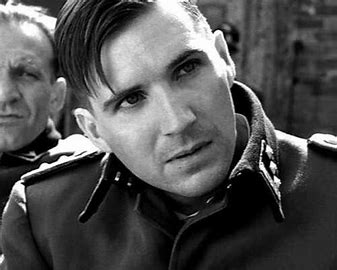
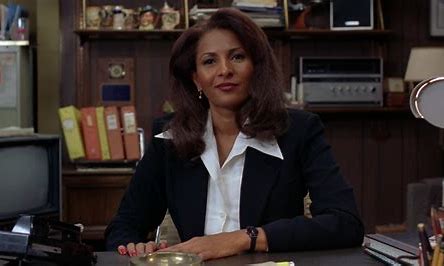


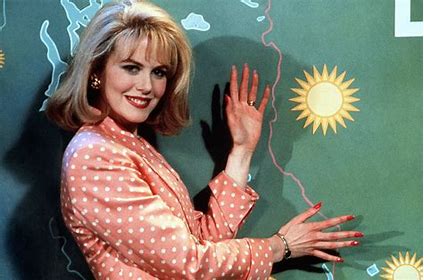







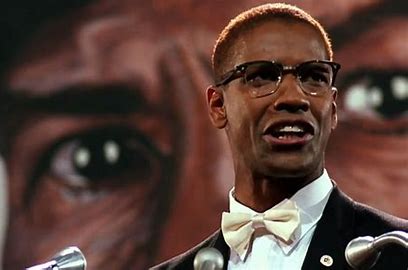


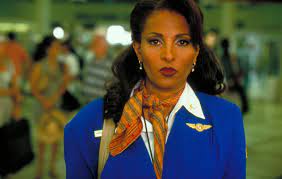
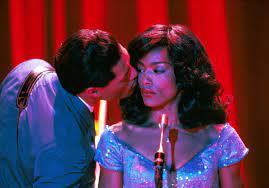





No comments:
Post a Comment